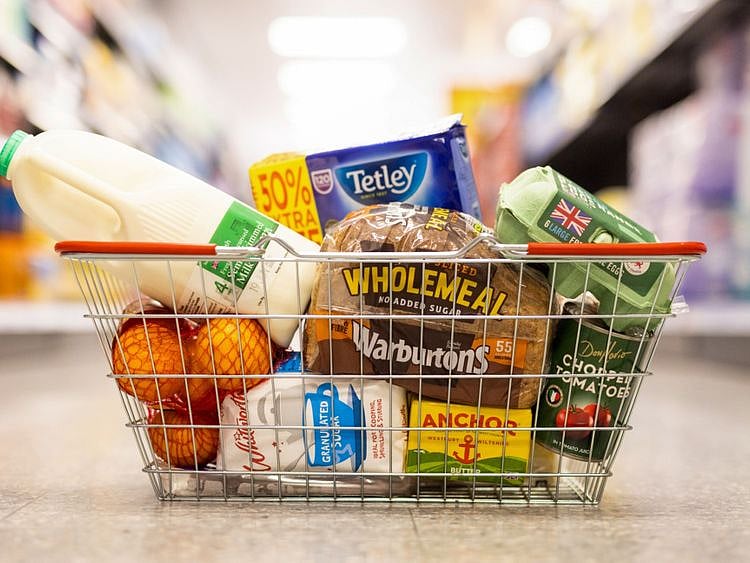Gulfood 2023: UAE consumers could be spending less on food bills as shipping costs drop sharply
Strong dollar/dirham is helping with food import costs, and shipping too has dropped

Dubai: After nearly a year, UAE consumers will start spending less on food bills in the next few weeks as food import prices finally start to slide. This is because shipping costs have been dropping significantly in the last two months and this will soon be reflected on food prices at the consumer level, according to UAE-based food importers and retailers
“Food inflation had peaked – now it’s a time for a drop,” said Dr. Dhananjay Datar, Chairman and Managing Director at Dubai-based Al Adil Trading, which specializes in Indian spices and food. “Freight costs have dropped from $1,150 a TEU to $125 on our sector, and then you have the relatively strong dollar and which makes imports from most sourcing markets much cheaper.
“There’s also a third reason, of lower fuel costs than was the case last year. These cost benefits will pass on to the UAE consumer.”
Also Read
Gulfood 2023: Investment in UAE F&B sector a top priority to achieve food securityEuropean Rice to participate at Gulfood 2023It's against this backdrop of expectations that the latest Gulfood trade event opens in Dubai, and which has through the years been one of the most popular industry-specific events in the city.
Sources say there’s always some lag between shipping costs coming down and that being reflected on food prices, whether at the grocery store, hypermarket or even in the restaurant/ordering in bills.
Consumers worldwide have been paying more on their food purchases since March last, after the outbreak of hostilities between Russia-Ukraine. That immediately impacted exports of wheat from Ukraine, one of the world’s biggest suppliers of the commodity. Later on, managed shipments of this staple has been going out from Ukraine ports, cooling down prices to some extent.
But wheat wasn’t the only food essential that saw prices escalate – the rapid increase in shipping costs made sure all were affected.
Spending levels did not drop
Even as they began spending more, consumer demand in the UAE, Saudi Arabia and other Gulf markets did not drop. That’s according to Ghassan Aboud, founder and Chairman, Ghassan Aboud Group, which is expanding its interests in the food space significantly, not least through a dedicated storage and distribution hub in Abu Dhabi. (The Group also owns and operates the Grandiose supermarket chain.)
“Although food prices have dropped from the pandemic peaks, the overall FAO Food Price Index (FFPI) in 2022 (averaged at 143.6 points) remained at all-time high levels,” said Aboud. “Staples like wheat, rice, sugar, and palm oil have consistently risen due to tighter availability and increasing demand.
“With the region being a net importer of food commodities, we have seen a rise in food prices across the GCC, consistent with global trends. But average spending on food commodities has not dropped. “Despite the macroeconomic headwinds, spending even on non-essentials has also grown by double-digits in the UAE and KSA. Overall, there is a positive local sentiment when it comes to the F&B and retail sectors.”
Will restaurants cut their menu rates?
The first signs of lower prices will be reflected, of course, during the weekly grocery runs. When it comes to dining out or ordering in, UAE consumers are unlikely to see any immediate prices drops. Sources in the F&B industry say there are multiple factors behind how they price their menu – and not just on the food costs.
“The F&B sector still has other costs to deal with – and they have all gained in the last 12 months, including rents, hiring, etc.,” said an operator of multiple restaurant brands in the UAE. “We may need to see more price drops on the food side to change our menu rates.”
Operators of ‘virtual’ restaurants have a different take – they say that any benefit they get from having to spend less on their own sourcing will be passed on.
Whether to pass on cost benefits or not
“The food market is intricate, which makes it difficult for business owners to set rates,” said Rohith Muralya, Director at India Palace, the restaurant brand, which is reworking its menu cards to reflect a 10 per cent price drop. “The decision-making may be even more impacted by the recent increase in rice and grain prices. “Customers can still benefit from the food industry's comparatively higher level of stability. More F&B joints may start offering the advantage of cheaper rates as the situation improves over the coming months.”
Plan B sourcing
Some commodities, especially wheat, still face supply issues after the start of the Ukraine crisis. Other leading wheat producers such as India have imposed export bans to make sure the domestic markets get their fill and there is no escalation of costs for Indian consumers.
"The India ban meant we had to look for wheat from elsewhere, and right now are bringing them in from Australia," said Datar. "This alternate sourcing meant there are no shortfalls at our stores and for the UAE consumers. Australian wheat is about 10 per cent higher than from India, but that's manageable because of the overall drop in shipping rates.
"Sugar is another food commodity facing a tight supply from India - here, we have managed to compensate by sourcing locally, the 'Al Khaleej' brand."
By now, UAE food businesses have learnt how to cope with the disruptions. And they intend to keep it that way just so they can be certain not get hit with any sudden changes in the global supply and crop situations.
Sign up for the Daily Briefing
Get the latest news and updates straight to your inbox
Network Links
GN StoreDownload our app
© Al Nisr Publishing LLC 2025. All rights reserved.